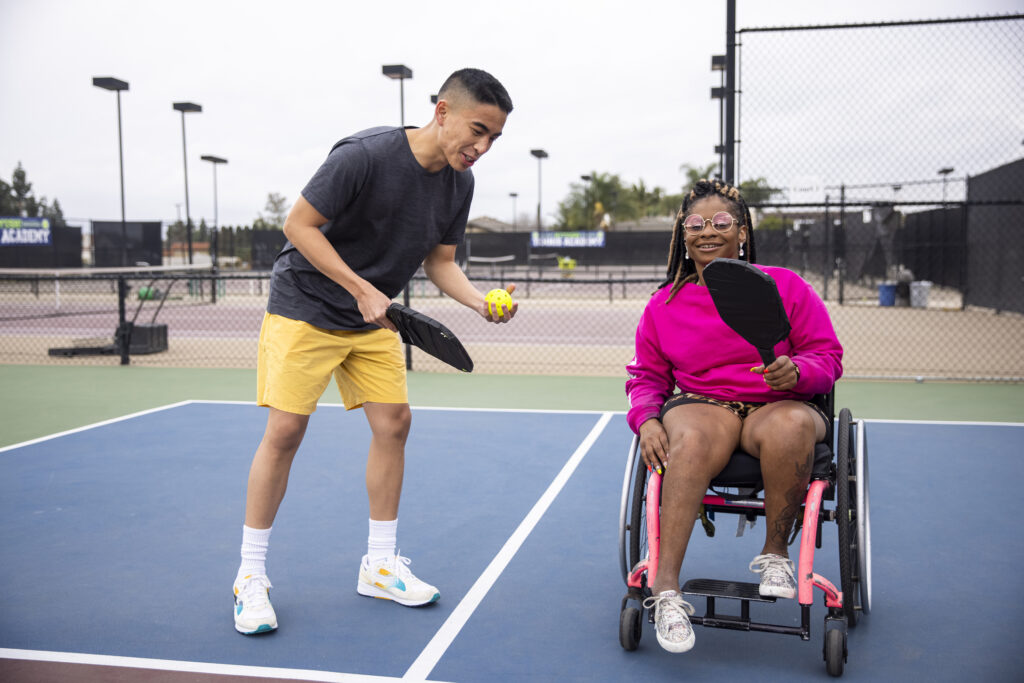Recreational Rehabilitation

Rehabilitation is not a quick fix; it’s a journey to wellness, sometimes a long one. Whether it’s recovering from a physical injury, regaining motor skills after a stroke, or relearning speech abilities post-surgery, the path can often be challenging and demanding. Thankfully, in addition to traditional therapeutic exercises and treatments, there’s an approach that incorporates activities the patient enjoys to help them recover physical, functional, and emotional health: recreational rehabilitation!
Recreational therapy, also known as therapeutic recreation, uses recreational activities to support the needs of individuals with illnesses and/or disabling conditions. Some of the activities that might be used are:
- Art
- Cooking
- Dancing
- Field trips
- Sports
- Group exercise
Recreational therapists go beyond helping clients recover their basic motor functioning. They also help them flex their reasoning abilities, which helps build confidence and reduce stress and anxiety. They design unique programs based on the client’s physical and emotional needs and can give specific ideas on how to improve movement and interaction with surroundings. People of all ages can benefit from recreational therapy, and it has been used in stroke recovery, injury rehab, motor skills improvement, and daily living activities strengthening.
There are many ways that recreational therapy can work together with other rehabilitation therapies.
Physical therapy Picture a patient recovering from a severe leg injury. While traditional physical therapy sessions focus on regaining strength and mobility, recreational therapy introduces activities like swimming, cycling, or yoga to make the process more engaging and enjoyable.
Occupational therapy Consider an individual who has a serious illness and is learning adjust to a new normal. Recreational activities such as gardening or cooking can enhance fine motor skills; they also allow individuals to reclaim control over their lives and rediscover joy in everyday tasks.
Speech therapy Imagine a stroke survivor with speech difficulties. Speech therapy focuses on language exercises and articulation drills while recreational therapy introduces creative avenues. Music therapy, for instance, can enhance communication skills and foster emotional expression through rhythmic patterns and vocal exercises.
Recreational therapy can bring motivation and engagement, holistic healing, and quality of life to the rehabilitation process. February is Recreational Therapy Month, and the perfect time to learn more about its impact in transforming lives and restoring hope. Rehabilitation isn’t just about physical exercises; it’s about rediscovering joy, rekindling passions, and embracing the journey toward healing and recovery.
![CPT Rehab [logo]](https://www.cptrehab.com/wp-content/themes/cpt-rehab/images/logo.png)